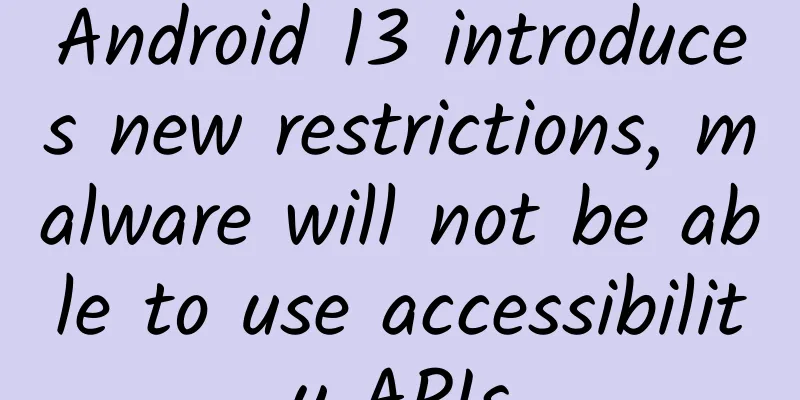Is Android controlled by Google not a good Android?

|
Mitch Lasky, partner at Silicon Valley venture capital firm Benchmark Capital, believes that Google has no intention of opening up the Android system because mobile applications will replace the Internet. Benchmark Capital just participated in an $80 million funding round for Cyanogen, which develops a customized version of Android that Google doesn’t have tight control over. Lasky said that when Android was first introduced, operators were worried that if Android dominated the mobile market, Google would force users to use its own online services and operators could only provide basic data network services. In order to attract mobile operators, Google promised them that Android would remain open. As Lasky writes, “Handset makers and wireless carriers worried that Android was too closed and that Google could steal their most profitable business. The open-source release reassured both handset makers and wireless carriers.” "According to Android's promise, if a mobile operator feels threatened, it can develop its own Android system with its own app store and cloud services. In reality, even though Samsung and other manufacturers have invested heavily in optional services, the prosperity of the Android ecosystem still belongs to Google," Lasky believes. Why did Google change its position? This is because Google did not foresee the rise of mobile applications, let alone the fundamental threat that mobile applications would pose to search services. When users use applications such as Yelp and OpenTable, they rarely use Google to search for Internet information. To this end, Google has made its own services the center of the Android system, while also forcing operators to release Google mobile application components. "Google has put its own apps and services at the heart of Android, de-emphasizing the Android open source project," Lasky wrote. "Google has also exerted influence over third-party apps through APIs, allowing Google content and services like Google Maps and Google Wallet to enter third-party transaction processes." Every operator and handset manufacturer knows that Google recently modified the Android licensing agreement, requiring partners to release Google Mobile Suite and step up compatibility certification. It is true that operators can still obtain Android source code and develop their own Android systems, such as Amazon's Fire series and Cyanogen system. However, developers need to invest a lot of effort and money. Despite this, Lasky still believes that the huge success of non-Google-controlled Android in the Chinese market shows that non-Google versions of Android systems such as Cyanogen have huge market space. This is why Benchmark Capital invested in Cyanogen. |
<<: Swift social app text input optimization "hodgepodge"
>>: Cook recalls Steve Jobs in a long interview: He was my best teacher
Recommend
The hunting suit market is too competitive. The 2025 Song L EV is fully upgraded with more features but no price increase. It starts at 189,800 yuan.
On August 30, the 2024 Chengdu Auto Show official...
Shadow video live streaming
Introduction to the live streaming resources of S...
Lessons from new energy vehicle companies’ subsidy fraud: Policy design must plug loopholes in advance
On September 8, the Ministry of Finance exposed f...
Use the okhttp framework to implement user login including verification code and maintain session operation (Part 1)
1. What problem does this article solve and what ...
A physical examination revealed elevated "tumor markers". How far is it from cancer?
During the physical examination, I believe many f...
Baidu Union account establishment and creative production, how to build Baidu Union promotion?
1. Account establishment (1) Establishing a netwo...
Large-capacity batteries + fast charging are popular, but the rate of mobile phone accidents is also increasing
[Editor's note from Tencent Technology] Bloom...
About the 2022 Chengdu New Tea and Tender Tea Arrangements, a good place to drink and taste tea
Reservation arrangements for Chengdu new and tend...
Will washing away blood lipids make your body healthy?
When the machine starts, the garbage in the blood...
Android 10 Go version will be launched for phones with less than 1.5GB of memory
According to foreign media reports, last year, An...
The love and hate of a pixel, the troubles between programmers and designers
I didn’t intend to stir up the so-called conflict...
Help! Why is someone feeding meat to Rose?
The editor sent me a picture, and my fruit flies ...
World No Tobacco Day | We have only heard of second-hand smoke, but where does third-hand smoke lurk?
□ Zhang Wenlou and Deng Furong May 31, 2024 is th...
Is it okay to eat more shrimps if you are allergic to them? Don't be silly, many people have been admitted to the ICU because of this
"If you are allergic to a certain food, just...
Is this just a pile of rocks? Ningbo Lizard: Is this polite? This is my "bathing platform"!
Have you noticed some small changes in the grass ...









